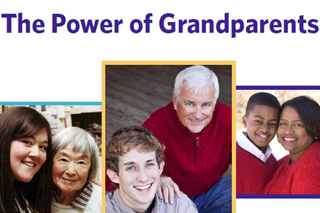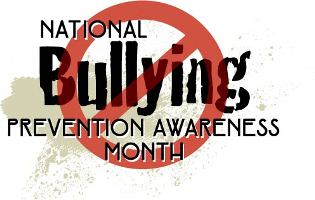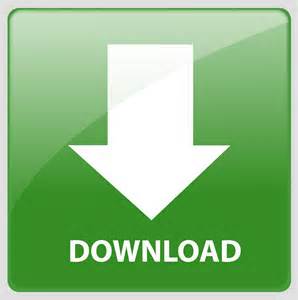Blog
Red Ribbon Week share
The 2015 Red Ribbon Week is Friday, October 23rd to Saturday, October 31st and the  theme this year is “Respect Yourself. Be Drug Free.” “Respecting yourself means looking at yourself every day and treating yourself like you would treat someone you loved most in the world”, said 13 year old Kristofer Calhoun, winner of the 2015 National Red Ribbon Theme Contest. Kristofer said, “If you do drugs, you really don’t have self-confidence and you don’t respect youself.”
theme this year is “Respect Yourself. Be Drug Free.” “Respecting yourself means looking at yourself every day and treating yourself like you would treat someone you loved most in the world”, said 13 year old Kristofer Calhoun, winner of the 2015 National Red Ribbon Theme Contest. Kristofer said, “If you do drugs, you really don’t have self-confidence and you don’t respect youself.”
DEA Special Agent Enrique Camarena, also known as “KiKi” wanted to make a difference by helping people he cared about. He said, “Even if I’m only one person, I can make a difference”. In honor of Special Agent Kiki Camarena, the nation carries on his commitment to raise awareness of the dangers related to drugs in America through Red Ribbon Week.
One person can make a difference. Each one of us has the power to help kids grow up safe, healthy, and drug free. Take the pledge today.
WHAT’S THE PLEDGE ABOUT?
- As parents and citizens, we will talk to our children and the children in our lives about the dangers of drug abuse.
- We will set clear rules for our children about not using drugs.
- We will set a good example for our children by not using illegal drugs or medicine without a prescription.
- We will monitor our children’s behavior and enforce appropriate consequences, so that our rules are respected.
- We will encourage family and friends to follow the same guidelines to keep children safe from substance abuse.
Take the pledge here
.
Bully Prevention Month share
October is Bullying Prevention Month
Since 2006 during October, individuals across the entire world make the extra effort to bring awareness, education and to change the culture around bullying and bullying prevention. Stopbullying.gov provides information on how to talk about bullying, prevention in school, and prevention in the community. According to stopbullying.gov, here are some signs to look for regarding whether a child is being bullied, is a bully, and why they may not ask for help.
What are some of the signs that a child is being bullied?
- Unexplainable injuries
- Lost or destroyed clothing, books, electronics, or jewelry
- Frequent headaches or stomach aches, feeling sick or faking illness
- Changes in eating habits, like suddenly skipping meals or binge eating. Kids may come home from school hungry because they did not eat lunch.
- Difficulty sleeping or frequent nightmares
- Declining grades, loss of interest in schoolwork, or not wanting to go to school
- Sudden loss of friends or avoidance of social situations
- Feelings of helplessness or decreased self esteem
- Self-destructive behaviors such as running away from home, harming themselves, or talking about suicide
What are the signs that a child is bullying others?
- Get into physical or verbal fights
- Have friends who bully others
- Are increasingly aggressive
- Get sent to the principal’s office or to detention frequently
- Have unexplained extra money or new belongings
- Blame others for their problems
- Don’t accept responsibility for their actions
- Are competitive and worry about their reputation or popularity
Why don’t kids ask for help?
- Bullying can make a child feel helpless. Kids may want to handle it on their own to feel in control again. They may fear being seen as weak or a tattletale.
- Kids may fear backlash from the kid who bullied them.
- Bullying can be a humiliating experience. Kids may not want adults to know what is being said about them, whether true or false. They may also fear that adults will judge them or punish them for being weak.
- Kids who are bullied may already feel socially isolated. They may feel like no one cares or could understand.
- Kids may fear being rejected by their peers. Friends can help protect kids from bullying, and kids can fear losing this support.
I PLEDGE TO:
• Help stop bullying by not bullying others
• Report bullying that I see or experience to my school and my parents
• Help someone I see who is being bullied
• Spread the word about bullying awareness
• Share information and resources about bullying prevention and response
• Be proud of who I am and celebrate our differences
Take the Pledge here
Click here for the toolkit
National Medicine Abuse Awareness Month share

October is National Medicine Abuse Awareness Month.
Nationally, prescription drugs are the second most abused drugs after marijuana. According to surveys from the National Institute on Drug Abuse, 20 percent of teens say they have taken a prescription drug without having a prescription for it themselves, and 5 percent report abusing OTC cough medicine to get high.
October is National Medicine Abuse Awareness Month which aims to educate parents, youth and the community of the potential dangers associated with prescription and OTC medicine misuse and abuse. Each week the National Medicine Abuse Awareness campaign focuses on a different topic:
• October 5 -11 is Drug-Free Kids – celebrating kids who are “above the influence” and educating parents and other caregivers.
• October 12 – 18 is The Medical Community – focus on the medicine supply chain from manufacturer to doctor and pharmacist.
• October 19 – 25 is Our Schools – reaching out to teachers, administrators, counselors and nurses in our educational system.
• October 26 – 31 is Law Enforcement Community – honoring their key role in drug demand reduction and control.
What can you do?
ASK QUESTIONS by using the Respect RX steps whenever you receive a new prescription, you will have a better understanding of the proper use and potential dangers of your medication.
TALK to your teen about prescription and over the counter medicines. Teens listen, even if they seem like they do not. In fact, teens who learn about the risks of drugs from their parents are 50 percent less likely to use drugs.
SAFEGUARD your medicine cabinets. Take steps to protect your teens by locking up the medicines you have in your home. Know what you have and how much, so you will know if anything is missing. Discard any medicines you no longer need at a medicine take back event such as the one on Saturday, October 17th (for more information click here) or a permanent drop box location (click here for a list of ones in New Hanover County and Brunswick County). In 2014, New Hanover County collected 1,478 pounds of unused medication at two medication disposal events.
For more information and resources please visit the National Medicine Abuse Awareness website.
National Suicide Prevention Week & World Suicide Prevention Day share
September 7th through September 13th is National Suicide Prevention Week.
This year’s theme is “Preventing Suicide: Reaching out and Saving Lives.”
Suicide is a very complex health issue but it can be prevented. Research has found that 9 out of 10 people who die by suicide have a mental health condition. Getting effective treatment for depression or anxiety can prevent some suicides. Still mental health is not the whole picture, research has also found that self care such as good sleep, exercise, nutrition, and stress management can also play a critical role in promoting resilience. Together we can create a culture that’s smart about mental health. We’ll save lives, and vastly improve the lives of many more. So please join Coastal Horizons Center, Inc. in supporting suicide prevention. Together we can reduce the number of lives shaken by a needless and tragic death.
If you are in crisis, call the National Suicide Prevention Lifeline 1-800-273-TALK (8255) or click here.
Learn the risk factors and warning signs here.
Find a support group here.
For more information please visit the American Association of Suicidology or American Foundation for Suicide Prevention (AFSP).
Family Day share
Family Day – Monday, September 28th 2015
Family Day is a national movement that began in 2001 by CasaColumbia. Hands-on parenting has been shown to decrease the likelihood that their children will smoke, drink, or use other drugs. Family Day is a time for communities to come together and promote simple acts of parental engagement. Building communication by talking, listening, and offering guidance starting at an early age creates a strong basis for parental engagement.
“Every child deserves to grow up healthy and happy with an adolescence that is free from addiction. Parents, one of the best ways you can help keep your kids substance free is to be engaged in their lives – that includes being there for them at dinner,” says Jeffrey B. Lane, CASAColumbia’s Chairman. “The conversations that take place during family dinners give you a window into what your kids are going through and helps you keep the lines of communication open with them.”
Take the Pledge
Become a Family Day STAR!
I commit to:
S– Spend time with my kids
T– Talk to them about their friends, interests and the dangers of nicotine, alcohol, and other drugs
A– Answer their questions and listen to what they say
R– Recognize that I have the power to help keep my kids substance free!
Recovery Month Celebration 2015 share
 Millions of lives in America have been transformed through recovery. Recovery Month is a national observance held every September to educate individuals that substance use treatment and mental health services can enable those with a mental and/or substance use disorder to live a healthy and rewarding life as well as an opportunity for everyone to celebrate these accomplishments.
Millions of lives in America have been transformed through recovery. Recovery Month is a national observance held every September to educate individuals that substance use treatment and mental health services can enable those with a mental and/or substance use disorder to live a healthy and rewarding life as well as an opportunity for everyone to celebrate these accomplishments.
The Cape Fear Recovery Month committee will host the annual Recovery Month Celebration on Sunday, September 20 from noon to 3 p.m. at the Wrightsville Beach Park. The theme for Recovery Month 2015 is “Join the Voices for Recovery: Visible, Vocal, Valuable!” This year’s theme highlights the value of peer support in educating, mentoring, and helping others. Join us to celebrate healthy family fun!
With more than 600,000 people who self-identify as in recovery in North Carolina this annual celebration in our community allows us to recognize those who are in recovery, and share with others that recovery is possible. The event will feature local speakers discussing personal experiences with recovery from mental and substance use disorders, resources and provider booths, and live music. This is a community-wide event for a community-wide topic. And all are invited to celebrate and learn more about recovery.
Questions? Contact Tammy at Coastal Horizons Prevention Services.
International FASD Awareness Day – September 9, 2015 share
September 9th is International Fetal Alcohol Spectrum Disorders (FASD) Awareness Day. FASD Awareness day is the ninth day of the ninth month as a way to remind everyone that during the nine month of pregnancy a woman should not consume alcohol.
According to the National Organization for Fetal Alcohol Spectrum, NOFAS, an estimated 40,000 babies are born each year with FASDs, which can result in birth defects, intellectual or learning disabilities, behavior problems, and trouble learning life skills. FASDs are completely preventable if a woman does not drink during pregnancy. Alcohol in the mother’s blood passes to the baby through the placenta and the umbilical cord. When a woman drinks alcohol so does her baby, so there is no known safe amount or type of alcohol to drink during pregnancy.
FASD: What Everyone Should Know – General Information about FASD
FASD Identification – How to recognize FASD and guidelines for screening.
FASD Prevention – Strategies for reducing alcohol use during pregnancy and challenges for FASD prevention.
FASD: What School Systems Should Know About Affected Students
FASD: What the Justice System Should Know About Affected Individuals
FASD: What Young People Should Know
For more information please visit NOFAS.
Summer Time and Grandparents share
 Spending time with your Grandkids this summer? Download “The Power of Grandparents” from drugfree.org and learn communication tips for talking with your teens, see the latest in drug trends, and find new ways to help keep your grandchildren drug free.
Spending time with your Grandkids this summer? Download “The Power of Grandparents” from drugfree.org and learn communication tips for talking with your teens, see the latest in drug trends, and find new ways to help keep your grandchildren drug free.




